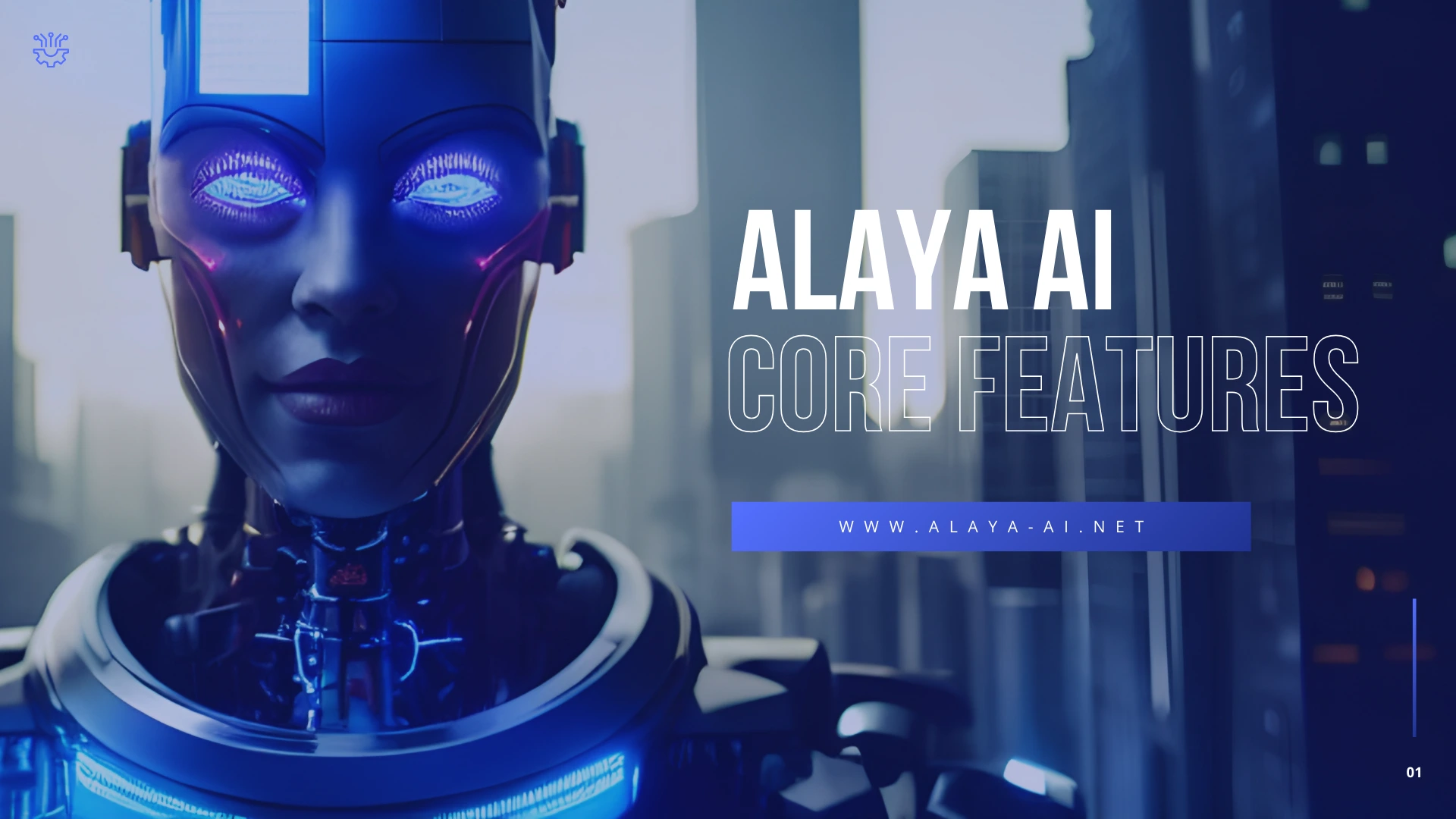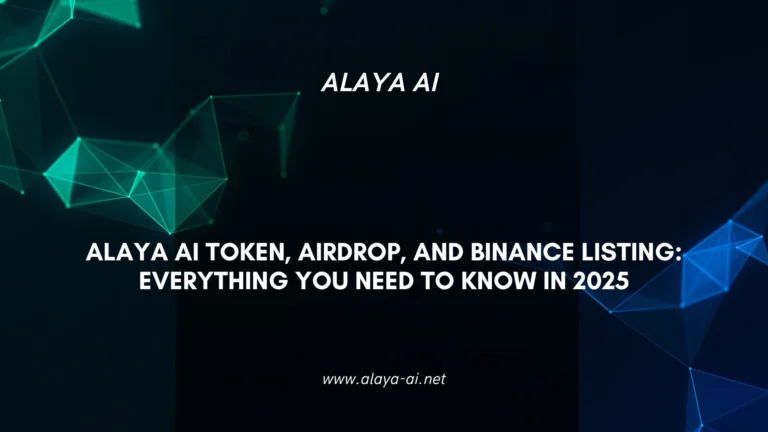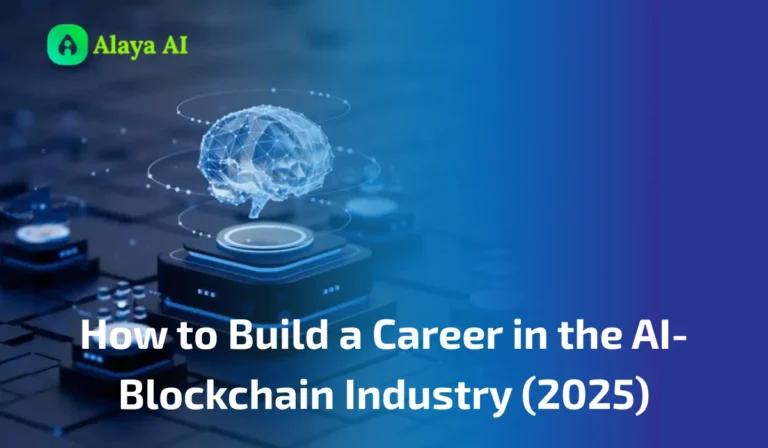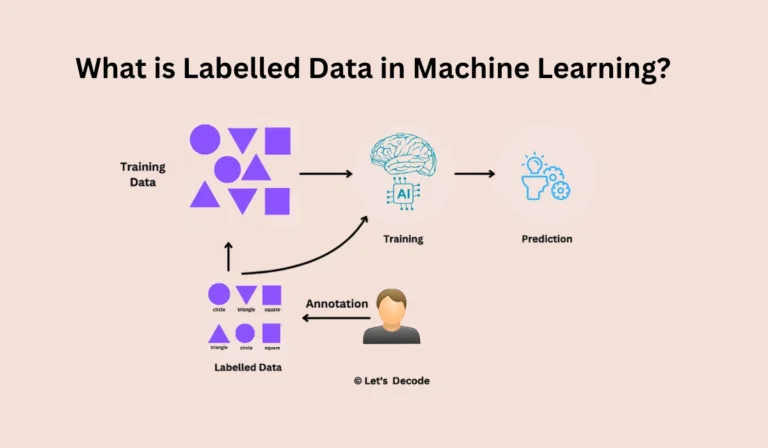Alaya AI Core Features: Revolutionizing AI with Web3 Data Infrastructure

Alaya AI Core Features: Alaya AI is an advanced artificial intelligence (AI) data platform that leverages Web3 technology to create a distributed, secure, and efficient AI training ecosystem. By integrating decentralized data sampling, an open data platform, and automated data labelling toolsets, Alaya AI offers AI developers and data consumers an unparalleled infrastructure for AI model training and optimization.
Distributed Data Ecosystem
Alaya AI employs a distributed data sampling structure that connects global data providers with AI training models through a Web3-powered infrastructure. The platform ensures data quality, security, and efficiency through an automated workflow:
Key Features:
- AI Training Question Bank: Data customers submit AI training queries, which are added to Alaya’s extensive question repository.
- Automated Task Distribution: Training tasks are distributed to verified contributors based on their expertise and past performance.
- HITL-Assisted AI Model Fine-Tuning: Human-in-the-loop (HITL) techniques enhance AI learning through targeted sampling algorithms.
- Data Preprocessing & Quality Assurance: Automated preprocessing and quality verification ensure high data integrity.
- Privacy & Security: ZK-encryption and data desensitization protect contributor privacy.
- Bias Minimization: Gaussian approximation and particle swarm optimization reduce sampling bias.
“These features make Alaya a leading Web3 AI data platform.“
Advantages:
| Feature | Benefit |
|---|---|
| Decentralized Data Collection | Ensures diverse and unbiased datasets |
| Automated Verification | Enhances data accuracy and reliability |
| Privacy Protection | Prevents data leaks and identity exposure |
| HITL Optimization | Combines human expertise with AI efficiency |
Open Data Platform
Alaya AI’s open data platform empowers small-to-medium AI developers by providing access to high-quality training datasets without significant financial investment.
Core Features:
- Custom Token Incentives: Enables AI developers to access datasets through tokenized transactions.
- Direct AI Developer-Data Provider Connection: Facilitates seamless data exchanges.
- Web3 Token Utility Innovation: Enhances data marketplace sustainability through blockchain integration.
- Customizable Dataset Bootstrapping: Supports dataset creation tailored to specific AI training needs.
Why It Matters?
The open data ecosystem eliminates data silos, making AI training more accessible, cost-effective, and efficient for emerging AI startups.
Data Auto-Labelling Toolset
Data auto-labelling is a crucial advancement in AI training, enabling self-supervised learning and efficiency optimization. Alaya AI’s intelligent auto-labelling system enhances AI capabilities while reducing human intervention.
Technical Overview:
- Three-Layer Intelligent Optimization Architecture: Enhances AI training efficiency.
- RLHF Fine-Tuning: Reinforcement Learning from Human Feedback (RLHF) improves AI adaptability.
- Decentralized Data Contributor Networks: Leverages a global pool of knowledge experts.
- 80%+ Verification Rate: Ensures data accuracy for most AI model categories.
- Static & Dynamic Data Processing: Supports real-time AI training for visual and non-visual data.
Efficiency Gains:
| Feature | Benefit |
|---|---|
| Self-Supervised Learning | Reduces manual data annotation efforts |
| RLHF Fine-Tuning | Enhances AI’s ability to process complex data |
| Decentralized Contribution | Improves dataset diversity and quality |
| Cost Reduction | Lowers expenses for AI model development |
Conclusion Of Alaya AI Core Features
Alaya AI is redefining AI data infrastructure through its distributed data ecosystem, open data platform, and intelligent auto-labelling toolset. By integrating Web3 technologies and advanced optimization techniques, it provides AI developers with cost-effective, secure, and high-quality training datasets.
As AI continues to evolve, platforms like Alaya AI will play a critical role in ensuring ethical, efficient, and unbiased AI development.






